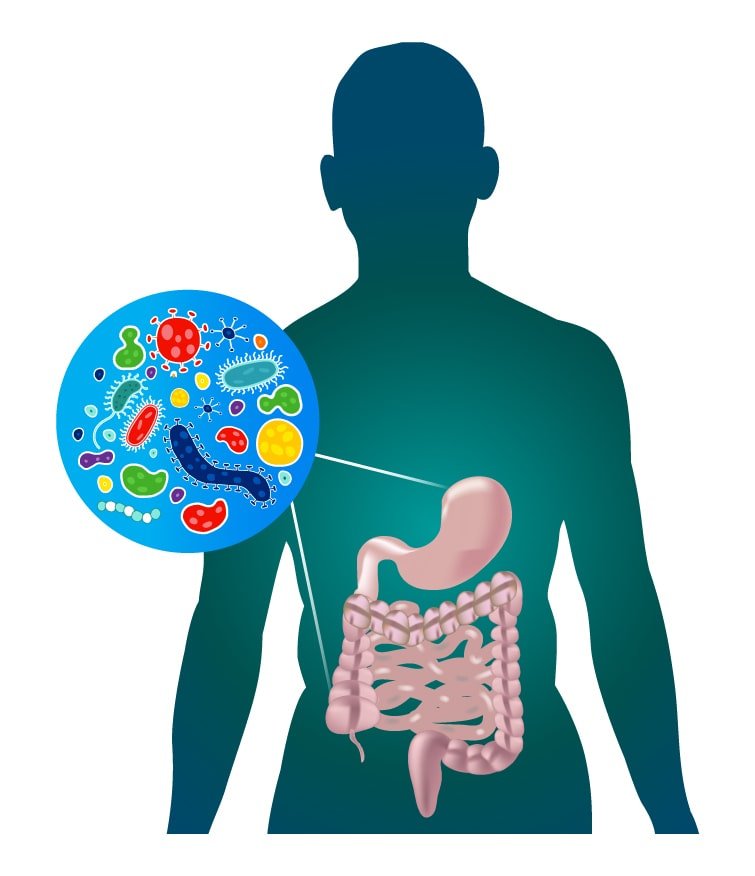Trust Your Gut: Exploring the Gut-Brain Axis and Its Role in Mental Clarity
When we talk about the phrase "trust your gut," it’s not just a metaphor. Science tells us that the gut and brain are intimately connected through a complex communication network called the gut-brain axis. This connection influences how we think, feel, and function daily. As a naturopathic physician specializing in brain health, I’m here to help you understand this fascinating relationship and offer advanced tools to uncover whether your gut health might be affecting your mental clarity.
What Is the Gut-Brain Axis?
The gut-brain axis is a two-way communication pathway that connects the gut’s nervous system, called the enteric nervous system (ENS), with the brain’s central nervous system (CNS).
This network relies heavily on the vagus nerve, one of our body’s longest nerves, which extends from the brain to the abdomen, facilitating rapid exchange of signals between the two systems.
Gut’s nervous system= enteric nervous system (ENS)
While the brain controls our thoughts and emotions, the ENS—also known as our "second brain"—controls digestion, nutrient absorption, and gut motility. Both systems collaborate to keep the body in equilibrium (homeostasis). When this balance is disrupted, it can cause physical, emotional, and cognitive symptoms.
The Role of Gut Microbiome & Why Diversity Matters
A key player in the gut-brain axis is the gut microbiome— home to trillions of microorganisms that live in your large intestine.
These microbes break down foods like fiber that your body can’t digest through a process called fermentation. This process produces beneficial “metabolites.”
A few of the most well-studied benefits we see today include appetite regulation, immune modulation, energy stabilization, and mood/cognitive enhancement.
You can optimize brain health, mental clarity, and emotional well-being by maintaining a diverse gut microbiome.
A healthy gut relies on a balanced and diverse microbiome. Different microbial species have unique capabilities and thus produce unique benefits, from regulating inflammation to synthesizing neurotransmitters like serotonin, gaba, and acetyhcholine.
When this balance is disrupted— a condition called dysbiosis—it can lead to symptoms like brain fog, depression, and cognitive challenges.
For example:
People with depression often have a less diverse microbiome, marked by higher levels of inflammation-related bacteria and lower levels of anti-inflammatory species.
Individuals with neurological conditions like autism spectrum disorder (ASD) frequently experience gastrointestinal symptoms, underscoring the gut’s role in mental health.
How Gut Microbes Shape Brain Health
Gut microbes produce a range of metabolites, including short-chain fatty acids (SCFAs), vitamins, neurotransmitter precursors, and tryptophan metabolites that can interact with brain cells, affecting mood, cognition, and behaviour.
The Serotonin Connection
Did you know that 90% of serotonin—a key neurotransmitter for mood regulation—is produced in the gut?
Serotonin production is dependent on tryptophan, an amino acid from dietary protein. Because most of your serotonin is made in your gut, microbial diversity can alter tryptophan metabolism and serotonin levels, influencing mood and cognitive performance.
How it works:
The gut microbes convert tryptophan into serotonin, increasing happiness and focus.
Alternatively, it may follow the kynurenine pathway, which has been linked to cognitive decline and depression when dysregulated.
Signs Your Gut May Be Affecting Your Brain
If you’re experiencing brain fog, difficulty concentrating, or mood swings, your gut might be the root cause. Common signs of gut-brain axis dysfunction include:
Frequent gastrointestinal issues like bloating, diarrhea, or constipation.
Unexplained fatigue or lack of mental clarity.
Emotional challenges, such as anxiety or depression.
How to Improve Gut Health for Mental Clarity
Prioritize whole foods
Fill your plate with fiber-rich whole foods like vegetables, fruits, whole grains, and legumes. These provide prebiotics, which feed beneficial gut bacteria.
Eat fermented foods
Foods like yogurt, kimchi, sauerkraut, and kefir are natural sources of probiotics, introducing healthy bacteria to your gut.
Reduce processed foods
Processed foods can disrupt the gut microbiome, negatively impacting mood and cognitive function.
Practice mind-body techniques
Activities like meditation and cognitive-behavioral therapy can improve gut microbiota composition and enhance gut-brain communication.
Advanced Testing for the Gut-Brain Axis
If you suspect your gut health is affecting your cognitive performance, I offer advanced gut microbiome testing. These tests analyze the balance of bacteria in your gut, helping to identify whether dysbiosis or a lack of microbial diversity could be contributing to your symptoms. With this information, I can create a personalized care plan that supports your brain health through targeted dietary changes, supplementation, and lifestyle interventions.
Ready to Address the Root Cause?
Your gut and brain are intricately connected, and optimizing one can significantly improve the other. If you’ve been struggling with brain fog, difficulty concentrating, or emotional challenges, let’s explore whether your gut is the missing piece.
Schedule a 15-minute consultation today to learn how we can work together to uncover the root cause of your cognitive concerns and restore balance to your body and mind.
Trust your gut—it might be smarter than you think.











